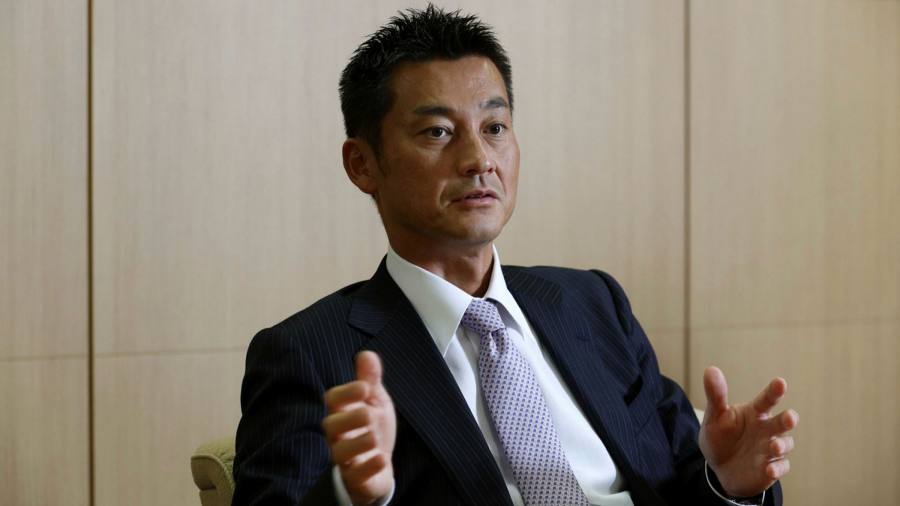[ad_1]
SoftBank said on Friday that Katsunori Sago, its chief strategy officer who was viewed as a potential successor to founder Masayoshi Son, will resign after less than three years at the technology conglomerate.
The departure of Sago, a top banker who was once tipped as a possible president of Goldman Sachs Japan before he joined SoftBank, is the latest in a string of high-profile exits at a company whose strategy investors said has become increasingly difficult to define.
The loss of the chief strategy officer adds to the serious management upheaval at the company after its chief compliance officer, chief legal officer and chief communications officer also left over the past 12 months.
“As CSO, he played a crucial part in expanding SBG’s potential as an investment company,†Son said in a statement. “We would like to express our heartfelt gratitude for his contributions and achievements.â€
SoftBank said Sago had asked to resign but it declined to comment on why he was leaving and where he was heading next. The company has yet to find a successor for his role. His exit comes as SoftBank’s share price recently surpassed the all-time high it reached just before the dotcom bubble burst in 2000.Â
Sago left Goldman Sachs in 2015 to manage the $1.9tn investment portfolio of Japan Post Bank — a high-profile position in which he was expected to stay for many years. His sudden departure for SoftBank, said people close to Sago at the time, came with an implicit promise that by making the move, he stood a good chance of one day becoming Son’s successor.
Upon joining SoftBank in June 2018, Sago appeared to make a swift impact: he convinced almost a dozen of his former Goldman Sachs colleagues in Tokyo to join him at SoftBank. By importing a significant team of Goldman bankers, Sago appeared on track to create an internal counterweight to the group of former Deutsche Bank traders who had been brought in by the London-based head of the $100bn Vision Fund, Rajeev Misra.
But over the past 18 months, said people familiar with the situation, Sago and his team have found themselves underused in a company that has shifted from an operator of assets to a global technology investor.Â
“It is not a surprise for me,†said one person close to Sago. “He does not have much to do — he had been doing nothing for the last 18 months. He is good so he wasn’t losing money but he was watching people in the company losing money and he started looking for other positions elsewhere. He knew that he wasn’t going to become Son’s successor.â€
In recent months, the 63-year-old Son has also told investors that he has abandoned plans to retire at the age of 70.
SoftBank’s Vision Fund has recorded its best performance in the final three months of 2020 in a dramatic turnround following the failure of some of its high-profile bets including US property group WeWork. But the rebound follows a turbulent year during which it carried out a huge restructuring of assets alongside aggressive purchases of US equity derivatives using its new cash pile.
In recent months, Michael Ronen, another former Goldman Sachs banker and a top US executive at the Vision Fund, left the group after expressing concerns about “issuesâ€. Last year, Chad Fentress, the group’s chief compliance officer, resigned due to concerns about its governance measures.Â
[ad_2]
Source link





